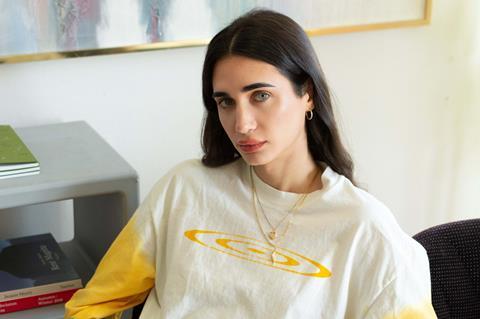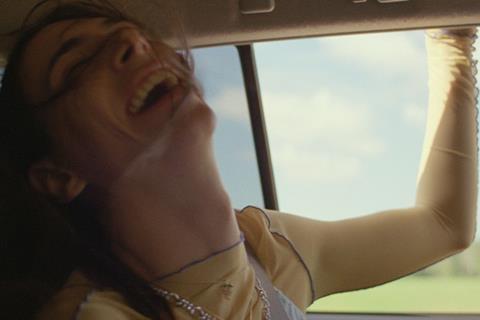
At first glance, Luis De Filippis’s route into the industry appears smooth. After a buzzy short For Nonna Anna premiered at Toronto and won the special jury prize at Sundance in 2018, De Filippis returned to Toronto in September with her first feature Something You Said Last Night. It portrays a transgender woman in her mid-20s who is on a summer vacation with her Canadian-Italian family.
But the reality for De Filippis has not been quite so seamless. The filmmaker, like the lead characters in her short and feature, is transgender. She fell in love with storytelling while training at Canada’s National Ballet School. She chose film school over ballet, graduating from Toronto Metropolitan University a decade ago, known then as Ryerson. A few shorts and a music video followed, but, according to De Filippis, “You can’t find those anywhere — by design.”
De Filippis grew frustrated with the filmmaking process, and decided to give herself “one more shot” with For Nonna Anna. The short focuses on a relationship between a young trans woman and her grandmother. After it proved a success, she recalls the idea for her debut feature “flew into my brain and wouldn’t leave me alone”.
The filmmaker had an unrelenting vision of how she wanted to depict the trans lead, Ren, played by non-professional Carmen Madonia. De Filippis cast Madonia after she was spotted in a store.

“We all have watched films where trans characters are the villains or are sensationalised, and now there’s almost been an overcorrection, where trans characters are put on pedestals,” observes De Filippis. “I just wanted to tell a story about a normal woman, who can be quite mean and hurtful but has redeeming qualities as well.”
The feature, which does not directly address Ren as trans, proved a hard pitch. “We had to walk away from a lot of financiers who wanted us to punch up Ren’s transness and make it more obvious. The word ‘trans’ isn’t mentioned once in the whole script.”
De Filippis also produced the project, alongside Jessica Adams, Michael Graf, Harry Cherniak, Rhea Plangg and Michela Pini. The Florida Project’s Kevin Chinoy and Francesca Silvestri came on board as executive producers after a cold email from De Filippis. The shoot took place in Ontario in September 2021 for 19 days, with Cinereach, which provided development funding, supporting an on-set mentorship programme for trans creatives.
De Filippis says she is endlessly fascinated by “intergenerational conflict and relationships”. While not wanting to be pigeonholed, she admits, “It’s trans characters, and women specifically, who continue to entice and motivate me.”

























No comments yet